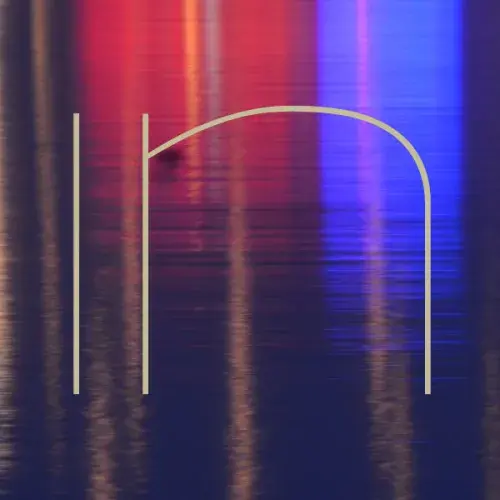What makes good problem solvers? What sets students on the road to the creative and effective leadership needed to meet today’s challenges the world over? At DAC, we believe the answer lies in the knowledge and confidence imparted in a liberal arts model that practices and instills out-of-the-box thinking and problem-solving; one that understands that critical thinking, creativity, nuanced analysis and expression, and the ability to work across disciplines are central to generate innovative solutions to global issues.
DAC is at once one of the most challenging and supportive places to study Art History and Visual Culture, Comparative Literature and Cultural Studies, languages, and the creative industries. Our students learn from professors who are experts in the fields to teach in majors that are interdisciplinary in their approach and rigorous in their methodologies. While we ask a lot of our students we also assist them every step of the way as they develop discipline specific knowledge, hone their research and critical thinking skills, dive into their creativity, polish their academic writing, and learn new languages.
Students with degrees from DAC have gone on to graduate school to further deepen their studies; they work in NGOs, development aid, museums and galleries, and all types of media; they have pursued opportunities as cultural leaders, entrepreneurs, journalists, teachers, media experts, professors, publishers, and lawyers.
HIGHLIGHTS

Creative Convergences
"Creative Convergences" is a dialogue series presented by our Division; this intellectual journey is not just a simple collection of conversations. It is a thoughtfully curated symposium where academia meets creativity, diversity, and ideas. Every gathering is a demonstration of the power of ideas that brings together innovative thinkers, distinguished scholars, and creative individuals from all over the world. By exploring the landscape of global leadership through the lens of liberal arts, participants get to experience firsthand the emergence of new perspectives that can only arise from such a rich and diverse dialogue.
FEATURED PUBLICATION
intervalla Volumes 8 and 9
The "intervalla" research journal, a transdisciplinary academic beacon from Franklin University Switzerland, notably advanced its mission with the publication of Volumes 8 and 9. These editions exemplify the journal's dedication to exploring contemporary human experiences from multiple perspectives. Emphasizing intellectual exchange beyond traditional academic confines, intervalla's latest volumes underscore its role in enriching scholarly discourse and addressing real-world issues. By integrating diverse viewpoints, Volumes 8 and 9 not only enhance academic dialogue but also contribute significantly to understanding complex societal challenges.
"Academic Travel: Departures" (2020), edited by Fabio Ferrari and Kate Roy, celebrated Franklin University's 50th anniversary. It delved into the essence of academic travel, examining its role in a more embodied, ethical pedagogy, especially in the context of the COVID-19 pandemic. The contributions emphasized the holistic immersion in the world, reflecting on travel as a medium of critical theorization and self-discovery, challenging traditional tourist perspectives and academic norms.
READ MORE
"Re-connecting the Dots...The Impact of Covid-19 on Displaced Students in Higher Education Systems" (2021), edited by Johanna Fassl, revisited the 2017 Scholarships Without Borders workshop. This volume focused on the pandemic's effects on displaced students in higher education. It included articles from academics and displaced students themselves, rethinking the concepts of borders and migration. The volume highlighted successful programs and initiatives during COVID-19, offering insights into future applications in refugee education. Both volumes, through their unique themes, underscored intervalla's commitment to pushing boundaries and fostering intellectual exchange across disciplines.
READ MORE

Students & Alumni
Daniela Baiardi '20
Graduated from FUS magna cum laude with a double major in Art History and Visual Culture and Visual Communication Arts and a Minor in Media Production and Publishing and gave the valedictorian speech to her class. Her background and interests are indicative of what makes Franklin a truly unique place. Born right next door to our campus in Sorengo, her family immediately moved to Nigeria and as a child already traveled to Niger, Ghana, and Benin before entering school. She returned to Europe for two years of middle school in Strasbourg and finished high school in Bern and now officially resides between Sorengo and Bogotà. Daniela currently is a MA student in the Master in History and Theory of Art and Architecture (MSTAA) at the Università della Svizzera Italiana USI and has obtained one of the most competitive internships in the Arts at the Peggy Guggenheim Collection in Venice where she currently resides.

Jonathan Bystrowski '22
Current student in his senior year majoring in SJS and minoring in CLCS. He is writing a thesis in creating, fostering and maintaining community health. Jonathan is also currently serving as the president of the Student Government Association putting his ideas about community health into practice with programming that fosters health among our own community.

The faculty in the Division of Arts and Cultures is diverse and interdisciplinary with expertise in a wide number of fields including Art History, Cultural Studies, Comparative Literature and Sustainability Studies. Research and curricular planning have been directed by faculty focus on social, cultural, environmental sustainabilities, and manifold interests in creative practices.
Division Chair
Full-time Faculty
Part-time Faculty
Our faculty publish volumes, attend and organize conferences, arrange workshops and guest lectures, creating new knowledge, learning opportunities and initiatives for the University and their students. In addition, they are award winning dedicated academics who further contribute to their field of expertise and enhance their skills and competences.
Creative Convergences
"Creative Convergences" is a dialogue series presented by our Division; this intellectual journey is not just a simple collection of conversations. It is a thoughtfully curated symposium where academia meets creativity, diversity, and ideas. Every gathering is a demonstration of the power of ideas that brings together innovative thinkers, distinguished scholars, and creative individuals from all over the world. By exploring the landscape of global leadership through the lens of liberal arts, participants get to experience firsthand the emergence of new perspectives that can only arise from such a rich and diverse dialogue.
Centre for Environmental Justice and Sustainable Futures
Center for Environmental Justice and Sustainable Futures supports research, teaching, and community activities at the intersection of cultural practices and the environment. The center was launched in September 2021 with the three-day international symposium “Retooling Knowledge: Sustainable Development Goals from the Perspective of the Environmental Humanities.” Join us in Zurich to learn more about sustainability in the urban context in a full semester program.
Academic Literacies Program
The goal of the Academic Literacies Program (ALP) is to help students become articulate and culturally aware writers. In order to respond to the needs of all Franklin students, regardless of background or experience in academic writing, ALP courses focus on effective writing, critical and analytical thinking, and learning strategies. ALP houses the WTG courses, which range from introductory to advanced academic writing; WTG 150 Crossing Borders comprises the first step in the 4-course Franklin Academic Writing Requirement. ALP also works closely with the Writing and Learning Center.
Writing and Learning Center
Franklin University Switzerland's Writing and Learning Center (WLC) also falls under DAC’s auspices. The WLC provides an inclusive virtual and actual space to support students of all levels and backgrounds to build on and make the most of their academic experience, aiming to foster students’ active writing and engaged learning at every stage of their university careers. The WLC space, and its enthusiastic staff (student tutors, many from DAC itself, trained in non-directive peer-tutoring) provide resources, tutorials, workshops, and class visits that support the student learning experience in writing (in all subject areas), languages, quantitative literacy, and general study skills.
SWB | Scholarships Without Borders
DAC co-chairs Caroline Wiedmer and Johanna Fassl founded SWB in 2015 when Europe was experiencing streams of migrants in the wake of the shattered Arab Spring revolutions: “We just felt that we had to do something in order to make a contribution to give the ones who have lost everything a second chance in life and so we founded SWB with the help of a FUS alum from Syria.” SWB collaborates with Ticino NGOs and the Canton to provide fully-funded scholarships to refugee students in Switzerland. The first graduate received a BA in Economics and Management in 2020 and currently there are two more students in the program. “We are so happy that we can make a difference in at least some lives. We have a great support system here at Franklin through our administration and our students who volunteer at SWB for tutoring, conversations, and all sorts of events. This provides good energy, currently we are involved in a larger project to help Afghan women.”
Our many faculty members’ publications range from academic journals, case studies, scholarly writings, book chapters and more with a cross-disciplinary perspective. They conduct innovative and pioneering research, spanning diverse insights, integration, and application while being actively engaged in the creation of intellectual exchange and education.
Highlighted
Other relevant Publications
Gee G.N & Vogelaar A. eds, Changing representations of nature and the city: the 1960s -1970s and their legacies, London, New York: Routledge, 2018.
A. Nocentini, S. Sarti & G. Warden, Acque Sacre, culto Etrusco sull’Appennino Toscano Florence: Consiglio regionale della Toscana, 2018
Gee G.N, “Painting within itself: the John Moores Liverpool Exhibition”, Journal of contemporary painting, Issue 2, Vol.4, October 2018, pp.345-61.
Gee, G.N, ed., “From loss to survivals: on the transmission and reconstruction of artistic gestures”, Intervalla, Vol. 5, 2017
Gee, G.N. Art in the North of England. 1979-2008, London, New York, Routledge: an Ashgate book, 2017.
Fassl, J. & Wiedmer C., eds, “Trauma, abstraction and creativity”, Intervalla, Vol.2, 2015
Zdanski, C. "Finding the Place of Art in Society: The Value of On-site, Hands-on Experience in Art Education in the Digital Age," The International Journal of the Arts in Society: Annual Review, Volume 9 (June 2015)
Gee, G.N. “From stone to flesh: the deconstruction and reconstruction of the British monument” in Monument et modernité dans l’art et la littérature britanniques et américains, Marc Porée & Christine Savinel, eds, Paris, Presses Sorbonne Nouvelle, 2015.
Fassl, J. Sacred Eloquence: Giambattista Tiepolo and the Rhetoric of the Altarpiece. Boston University Series of "Studies in Early Modern European Culture." New York and Bern, 2010
G. Warden, Greek Vase Painting: Form, Figure, and Narrative, Dallas: Meadows Museum and Southern Methodist University Press, 2004.





























